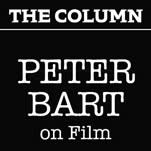Peter Bart: Netflix’s Numbers Keep Expanding, But So Does The Criticism

Corporate CEOs hate political noise. Comedians thrive on it.

More from Deadline
Netflix Urged To Remove Dave Chappelle Imagery From Offices Amid 'List Of Asks' At Hollywood Walkout
Dave Chappelle Is Open To A Discussion With Netflix Employees Upset By 'The Closer' - Report
Did Netflix’s co-CEOs sense that they would be stirring both noise and protest rallies when they signed onto Dave Chappelle? Or when they then defied CEO precedent by publicly defending him –then, in a blur of counter-transphobic rhetoric, suggested that they had “screwed up” their defense.
Walt Disney used to boast that no journalist (or activist) ever coaxed a political opinion from him (I once tried). The CEOs of the moment, on the other hand, are increasingly being lured into political combat on issues like abortion (Texas), voting rights (Georgia) or vaccine mandates (the major airline CEOs).
Stars, too, are joining the fray: Matthew McConaughey, having written a goofy bestselling memoir, may now run for governor of Texas. More and more stars and producers are expressing strong views on the “cancel culture.” It’s as though Warren Beatty and Gary Hart had retaken center stage.
“Hollywood people don’t get into political fights unless they crave extinction,” Robert Vaughn (The Man From U.N.C.L.E.) once told me. His rhetoric of the Vietnam era rendered his career extinct.
The czars of Netflix, with 222 million subscribers, don’t need to worry about extinction, but they understood they were pushing the rules in their multi-decibel defense of Chappelle. Their principal argument: Netflix’s responsibility is to serve its subscribers – coincidentally adding some 4.4 million Squid Game-inspired viewers in the last quarter. Secondly, opponents of Chappelle’s special, The Closer, provide no evidence that the actions of what people see on TV translate into “real world harm.” South Koreans have not reported an upsurge of Squid-inspired violence.
That was the “screw-up,” commented Ted Sarandos. “Since a group of our employees are hurting, I should have led with humanity.”
Some colleagues wondered what words of humanity would have appeased activists like Australian comic Hannah Gadsby, who declared: “You don’t pay me enough to deal with the hate speech dog whistling you refuse to acknowledge.” Whatever Netflix paid Gadsby, it forked over $24.1 million for the Chappelle special versus $21.4 million for Squid Game.
Media gurus wonder whether the fervid exchanges over Chappelle reflect not the special itself but signs of a sort of pan-cultural agita – a breakdown of trust gripping the cancel culture.
Some point to the headlines accorded to the 10 University of Michigan music students who last week demanded their professor’s expulsion after he showed them a 1965 version of Laurence Olivier’s Othello. The intent of their Chinese-born professor was to demonstrate how Shakespeare’s works could be adopted to opera, as Verdi had done. The problem: Olivier was in blackface.
The professor was forced to step down amid a flurry of apologies. In departing, he observed that surviving the Chinese cultural revolution as a young men was relatively easy compared to its U.S. counterpart.
While professors are not accustomed to showbusiness firestorms, stand-up comics have courted them for generations. Mae West was grateful for her 10-day sentence to a prison workhouse in 1927 for “suggestive” dialogue (her appearance fees jumped). Richard Pryor was arrested in Richmond, VA, at the same moment his co-writing credit appeared on Mel Brooks’ Blazing Saddles.
Chappelle’s October 5-premiering Netflix special The Closer in a sense replicated the moods of his stand-up predecessors, critiquing gender issues propounded by the LGBTQ+ movement — “the Alphabet people,” he called them. Was this “hate speech,” as GLAAD called it, or “a unique voice,” as co-CEO Reed Hastings declared?
Somewhere out there, Mae West might be wondering if her voice would be “unique” enough to land a Netflix special.
Best of Deadline
Sign up for Deadline's Newsletter. For the latest news, follow us on Facebook, Twitter, and Instagram.

 Yahoo Movies
Yahoo Movies 